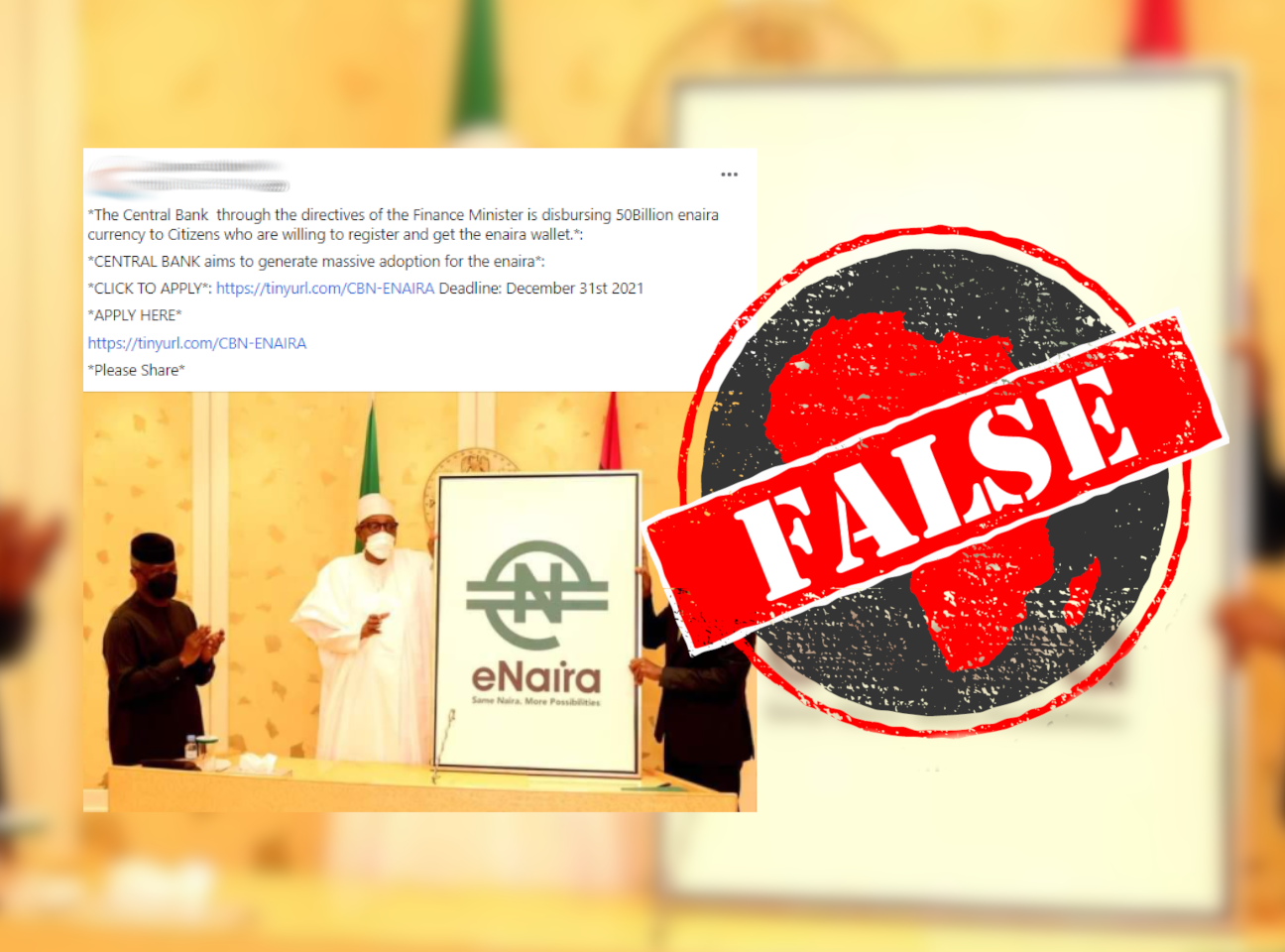A post circulating on WhatsApp and Facebook in Nigeria claims that the country’s central bank is disbursing N50 billion to citizens.
According to the 26 October 2021 post, only citizens who download and register for an eNaira wallet will be eligible for the giveaway.
The eNaira is a digital currency launched by the Central Bank of Nigeria (CBN) on 25 October. The post says the “Central Bank aims to generate massive adoption for the eNaira”.
It includes a photo of president Muhammadu Buhari and CBN governor Godwin Emefiele holding a large poster with the logo of the eNaira.
But are the details of the N50 billion up for grabs correct?

Typical hallmarks of online scam
The bad grammar in the post raises an immediate red flag. This is unusual in communication associated with a major national organisation.
The post also links to a blog, not the official websites of the CBN or the eNaira project. The addresses of websites associated with the Nigerian government usually end in “.gov.ng”.
On the blog, applicants are asked to share the link on WhatsApp to win 50,000 eNaira.
This is an example of engagement bait, commonly used by scams on Facebook to increase the reach of their posts. In most cases, it is a sign an ad is fake.
Read our guide on how to spot Facebook scams here.
‘Fraudsters at work again,’ says CBN
The bank has denied any links to the promotion.
“This is not true and couldn’t have been true. The CBN has never and would not distribute money to anybody,” Osita Nwanisobi, CBN director of corporate communications, told Africa Check.
“We can make loans available to people and they must access the loans through participating banks at the appropriate interest rate.”
“Fraudsters are at work again,” said Isa Abdulmumin, head of media relations at the bank.
Republish our content for free
For publishers: what to do if your post is rated false
A fact-checker has rated your Facebook or Instagram post as “false”, “altered”, “partly false” or “missing context”. This could have serious consequences. What do you do?
Click on our guide for the steps you should follow.
Publishers guideAfrica Check teams up with Facebook
Africa Check is a partner in Meta's third-party fact-checking programme to help stop the spread of false information on social media.
The content we rate as “false” will be downgraded on Facebook and Instagram. This means fewer people will see it.
You can also help identify false information on Facebook. This guide explains how.


Add new comment